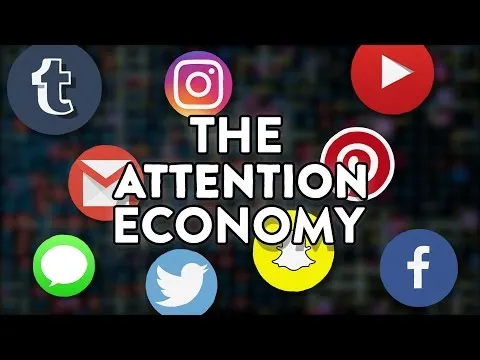There has been some talk lately on an advertising revenue strategy for steemit, or the current lack of one. It took Mark Zuckerberg a good 5 or 6 years to realise facebooks potential for online ad domination. Many facebook users are turning their backs on the mass media platform as it has become increasingly driven by advertising and target-marketing. Those who remain just haven’t yet found an alternative. I find it a strange we have a userbase on a platform who actually want to see advertising on the website, as the revenue might actually go to them. In this post I want to work out how the centralised monetisation of data and attention through facebook could possibly be decentralised on a steem platform bringing the value of that data and scarce attention back to the original owner.
What brought us to Facebook?
Whether we like to admit it or not, facebook revolutionised social networking online and connected the world in many positive ways. Other social networking apps like twitter and social media platforms like youtube also played a huge part in this. We are now much more likely to get the news of a japanese tsunami before the televised news gets to tell the story. With that we are much faster at resourcing emergency help for such tragedies. We also have a much easier time finding like-minded people to validate our aspirations and pursue ventures we wouldn’t otherwise find in a small town. But it wasn’t just people Zuckerberg was playing match-maker with. With the use of our freely given data - our age, sex, location, likes, dislikes, etc we are targeted by companies that believe we are the market for their product or service and Zuckerberg is the prodigy that sold them our data.

In order for steemit to compete with facebooks revenue model we need to recognise what it is that makes it so special. I see 2 things.
- The userbase
- The database
Other platforms like twitter, linkedin and even youtube don’t come close to the $18 billion dollars you made for facebook in 2015. That’s due mostly to the userbase, but also to the surplus resource of data you provide them. Before we can even talk seriously about advertising revenue steemit needs a large userbase to compete with other social media platforms. But once we have that userbase, we are still competing with an exceptional target-marketing model, that facebook uses by selling your data. If we really want to compete with that, we have to consider how we can sell our data, without making our data public property.
With the current model for most blogging websites and platforms like youtube, the advertiser pays the platform, then the platform pays a tiny portion of that revenue to the most popular content creators on the platform. The reason for a blogger and a platform to refrain from completely bombarding viewers with adverts is that they may lose viewers if they overdo it at the expense of the viewers experience. In other words, all advertising is at the expense of the viewer. But the viewer makes nothing in return for their attention.
Lets imagine a utopian web for a moment, and forget the technical aspects of monetising our data.
If every valuable search engine, web brower, application and website was cloned and put on a blockchain where people could be paid not just for content creation, but also for curation and attention then eventually everybody would choose the version where they can make some money right?
What if we had 2 clones of youtube
Lets call the clones A.tube and B.tube. From the advertising revenue these clones take X% for the platform, give Y% to the content creator and the viewer got Z% for their attention.
Now imagine that on A.tube Z=5% and on B.tube Z=10%.
So you might imagine a viewer would choose to watch videos on B.tube if that’s where their attention makes more money. But what would the content creators choose?
If on A.tube Y=30%, while on B.tube Y=25% of the advertising revenue, then you could find that the viewers have to view where the content creators are valued. As the saying goes, CONTENT IS KING. There could be some push and pull between these 2 cloned platforms, but the point I’m trying to make here, is that with this new revenue model, we could find a lot of competition on price. This competition is something we don't see between content creators when viewers can't put a price on their attention.
The Attention Economy and internet addiction
There is no doubt that the attention economy has been problematic up to now. Our attention has been monetised at the expense of our valuable time. Time which could have been spent more productively.

Information consumes our attention making it a scarce resource.
We live in a generation where people are constantly connected to their mobile devices, which can be both empowering and enabling in a bad way. People are finding it harder and harder to unplug, or focus on something without being distracted by another.

We don’t need monetary incentives to further addict ourselves to the online world. But they are certainly helping. I haven’t spent as much time online in about 3 years before steemit came into my life. I had intentionally been disconnecting myself from the online world in order to clear my head as I genuinely believe a lot of what I was being fed through my online addiction was mentally harmful to me. I recently went back to facebook to share some steemfest photos and a steemit post and as I found myself scrolling mindlessly through my facebook feed I felt a darkness wash over me and I remembered just how miserable facebook makes me. Perhaps the reason steemit doesn’t make me miserable (apart from the wonderful community) is because they have not yet monetised and exploited my attention.
Given the option to monetise our own attention, we could find ourselves so deep in rabbit holes that we can’t find our way out again! But many or perhaps most of us witness this problem of online addiction within ourselves. At least I know I did. And so if I could choose to switch off the monetary incentives, in order to gain control of my life, perhaps I would. In our utopian version of the web that would mean switching off advertising. Currently advertisers don't want us to do that even though they don't have to pay for the advertising you don't see. The reason they don't care about what they save by you blocking their adverts is because it costs them so little to shove it down your throat. But if the cost of advertising to you were higher, perhaps they would appreciate the savings.
This is why the viewer should set the price
Perhaps as users learn to value their attention more they would put their price up leading to more competition. The current system does not incentivise advertisers to compete on price. They choose the platform based on the userbase and the platform sets the price. The nuisance of seeing these adverts doesn't occur to the content creator who needs to monetise their content. Therefore they don’t compete on price the way a viewer would.
Monetising data
I had a lot of questions about how on earth a person could sell their own data to an advertiser. It's difficult to get my head around the idea of selling your information without making that information public property. We could encrypt our data and allow only companies who pay to see it, but then we have to trust those companies to stand by a non-disclosure agreement. After a lot of thought, this is how I imagine this model would work:
- On a particular steem platform our data could be encrypted making it private.
- Through a transaction system set up on the blockchain an advertiser could make a request to collect data from user clients that are selling that data and set a price on how much they are willing to pay per client.
- Each client would have a price set by the user for said data. If that price is lower than what the advertiser is buying at, then the transaction goes through and the advertiser can keep your data to help make good decisions. Whether or not they choose to advertise to you is irrelevant. On receipt of this data, there must be some form of “NDA” that prevents companies from reselling your data - but this could be impossible.
Targeted advertising is one thing, and it is more valuable than non-targeted advertising. It would be impractical to try to block advertisers who did not purchase your data because even those who purchased the data of your sex could be using the data of your location which was sold to them by a third party and there would be no way to prove that it is not because of your sex that they are targeting you.
As you can tell I still can’t get passed this issue of data being an asset that can be resold. Maybe this is a question for the experts of the blockchain.

